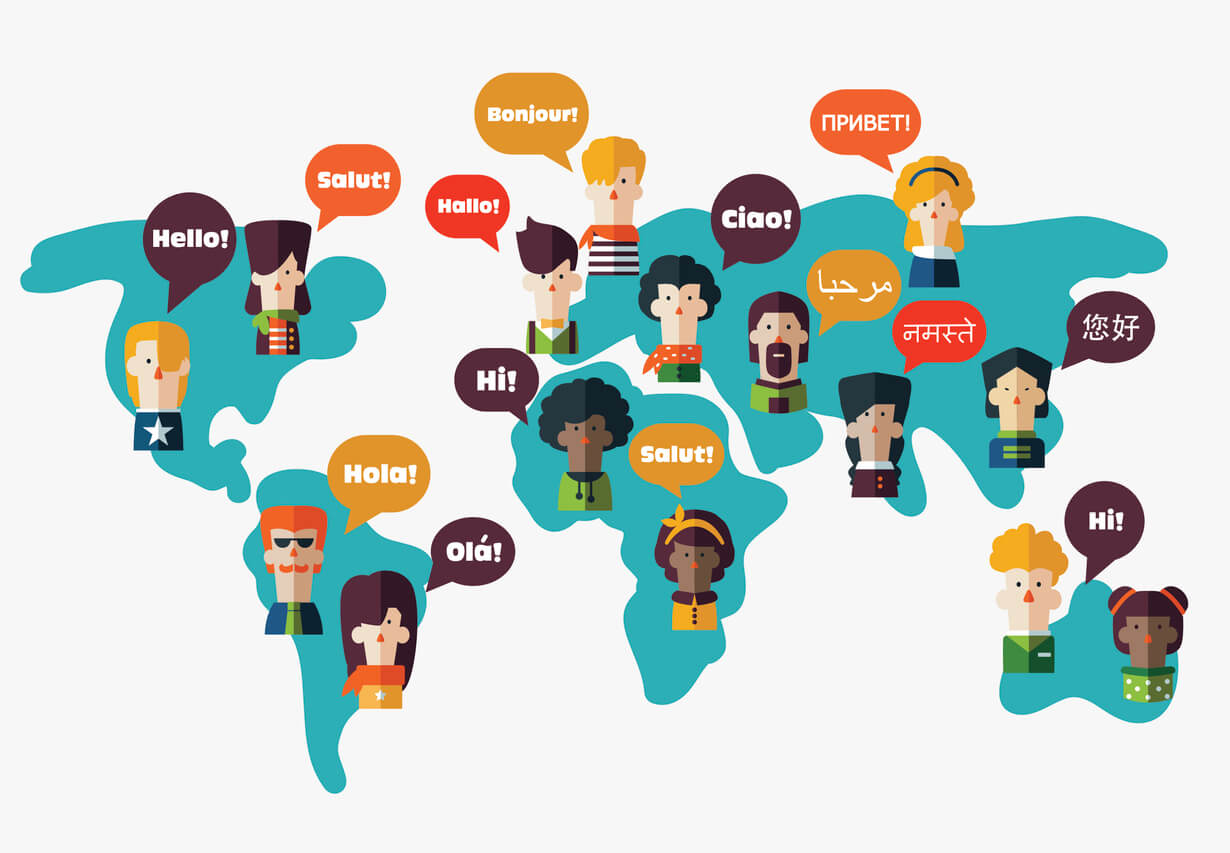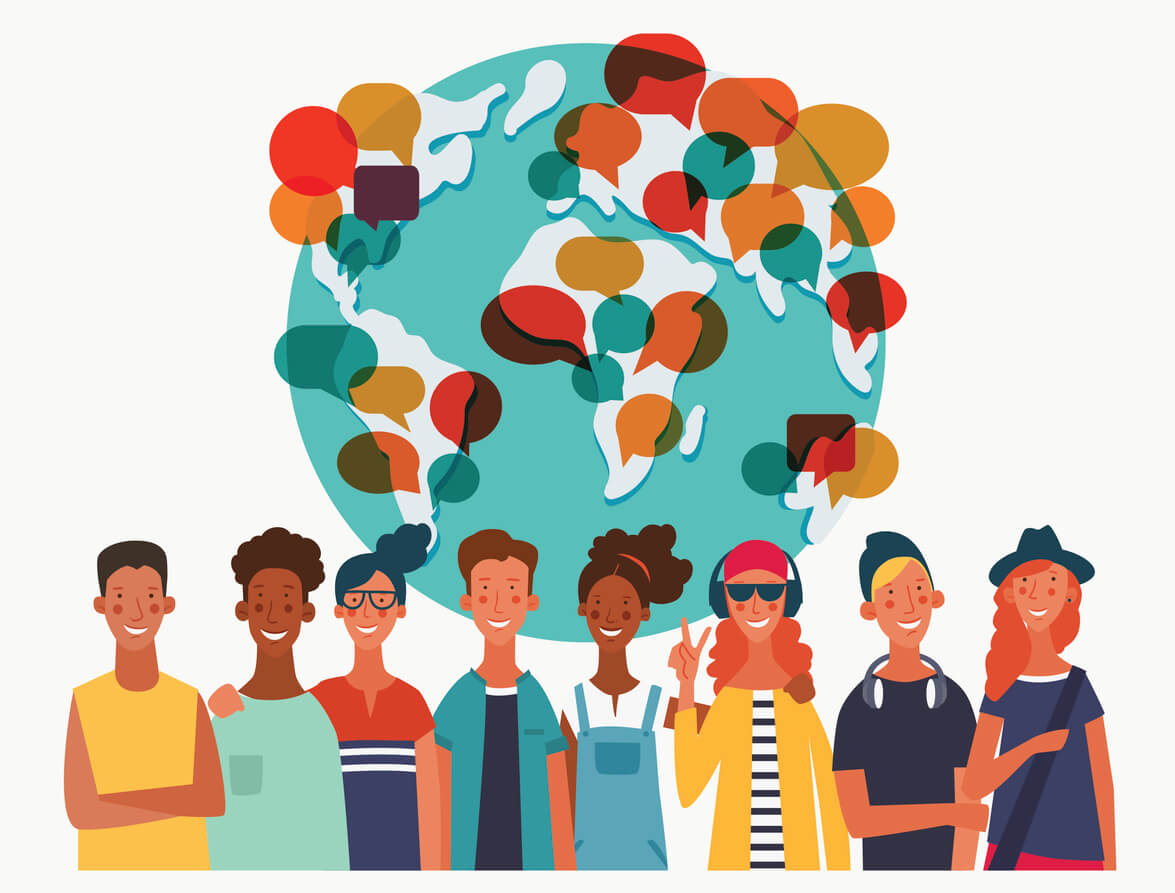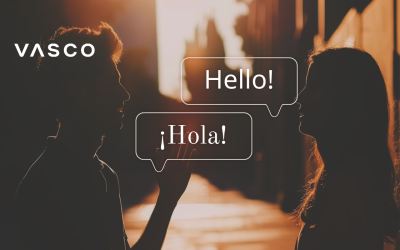Have you ever wondered how many languages are spoken in the world? If you had to guess, you might say…100? 200? This would be most people’s estimate. In fact, when people are asked to list how many language there are to their knowledge, the average is only around 10. That’s because most people are psychologically predisposed to be aware of only the most commonly used or learned languages around them. And the number of written languages of the world is yet another question altogether.
FAQ:
How many languages are there in our world?
What are the big 3 languages?
What is the difference between a language and a dialect?
How many languages are spoken in the United States?
How many languages are spoken in Asia?
How many languages are spoken in Europe?
How many languages are spoken in the world?

In the United States, for instance, English, Spanish, Chinese, and French are the most predominantly learned languages, with the addition of German, Russian and Italian offered in higher education curriculum courses. Other languages are virtually unheard of, even though in actuality there are around 350 spoken languages within the USA, including Tagalog, a Philippine language, which is more widely spoken in the USA than French. To ask the average American “What is Tagalog?”, however, would most likely get some rather strange and unusual responses considering most people have never even heard of it.
How many living languages are there in the world?

OK. What is the actual number of languages then? How many languages are there in the world? Some may count languages by the number of countries. But it’s tricky though. There are countries with more than one official language. Take a look at Spain. If you hear Spain, you think about Spanish. But Spanish is just one of the languages spoken in Spain. The most popular tourist destination – Barcelona – is the capital of the autonomous region of Catalonia, and Catalonia’s official language is Catalan – and it’s closer to French or Italian than Spanish. Citizens of Spain speak also in Basque or Galician.
And don’t forget about nations without countries, like the Kurds or Tibetans who have their own languages too. As you can see, it’s definitely the wrong path to count languages by countries, nations or flags…
The United Nations include 193 countries and, adding contentious territories and autonomous regions, there would be around 200 languages in the world. And it couldn’t be more wrong.
By rough estimates and according to linguists, the number of languages is believed to be closer to around 7,000, though it can’t be determined for sure in any scientific way. This may be because language is determined by culture, and not necessarily nationality. Culture, by definition, is dynamic and ever evolving and cannot be measured at any static level.
How many dialects are there in the world?

This is difficult. There are dialects that can be treated as separate languages by some. Take a look at the Balkan states. Citizens of Yugoslavia spoke the so-called Serbo-Croatian. However, the geopolitical situation changed and what used to be called a dialect, now is a language. Instead of one language, they speak Bosnian, Serbian, Croatian and Montenegrin – although they are all mutually intelligible. Some languages may be downgraded to dialects because of politics of discrimination. Some dialects may be escalated to languages to show national independence. Thus, the question can not be answered in a simple way.
How many languages are spoken in China?

Again, the question arises what should be treated as a language and what as a dialect. Most people know Mandarin as a dialect of Chinese. Some even treat it interchangeably. That’s probably because it’s spoken by roughly 71 percent of the population and is learned by foreigners in language schools. But Mandarin is actually a conglomerate language, combining multiple dialects from various regions of China. How many languages are there in China? In fact, there are hundreds of Chinese languages, the number can even reach 300. – It’s astounding if you get back to our first guess of the number of languages spoken in the world!
How many known languages are there in the world?

Another obstacle in determining the number of languages spoken in the world is the fact that some regions are still uncharted, at least from an anthro-linguistic perspective. Many researchers believe there are at least 100 known communal clusters across the globe in completely isolated areas, far from society and oblivious to the modern world. Their languages and cultures are relatively unknown and are protected against outside influences by the nations that harbor them.
Indigenous tribes can be found in Papua New Guinea or the Andaman Islands belonging to India. As no researcher has ever made any contact with them, their languages are still unknown and thus the total number of languages in the world is even more difficult to determine.
How many languages are spoken in America?

In the United States, 574 Native American tribal nations still exist. They are protected by 326 reservations owned by Native Americans. Out of the 300 indiginous languages once spoken, approximately only 175 Native American languages remain today with just a dozen or so believed to still be actively spoken. It’s important to note that many Native American tribes consider their language to be a sacred privilege reserved only for members, and are often only taught to outsiders through marriage and sacred ceremony. For this reason, even knowing how many Native American tribal languages exist today is still shrouded in mystery – as is the total number of languages spoken in America.
How many languages exist today?

Today, with globalism, mass migration and rising world economies, living languages are in flux. Experts suggest that just 23 languages account for more than half of the world’s population today. This means that around 40% of all the world’s languages are doomed to be extinct in the foreseeable future. It would significantly change the map of world languages. Even so, as cultures die and languages fade, some new ones emerge in their place. The world of languages is an evolutionary part of human existence and a global melting pot of which we don’t know the outcome or the end result. To that end, when we ask ourselves, “How many different languages are there in the world?”, we can only compare the question to grains of sand in the ocean and conclude, “enough.”
While there is no apparatus that would allow you to speak all of the languages of the world, the Vasco translation devices do a great job of enabling you to speak over 70 of them – at the snap of a finger.
In a nutshell:
The number of languages spoken in the world is estimated to be around 7,000. This figure takes into account the diversity of cultures, as language is often shaped by culture.
The exact count of dialects is difficult to pin down because what is considered a dialect versus a language can be influenced by social and political factors.
The number of languages spoken in China is estimated to be around 300.
The number of languages spoken in the United States is estimated to be around 350.











